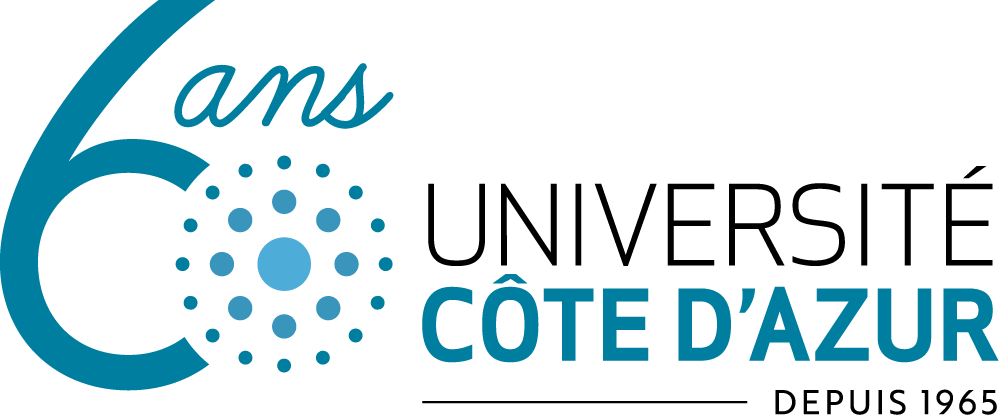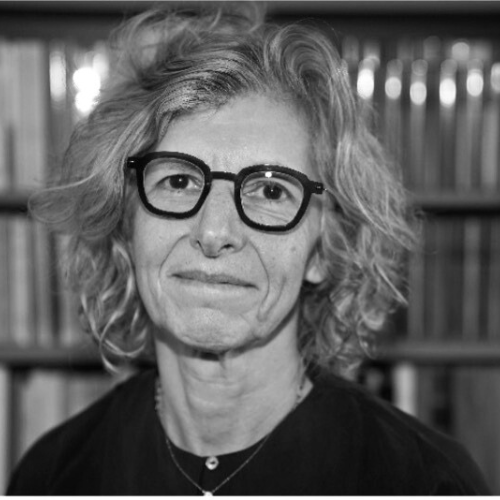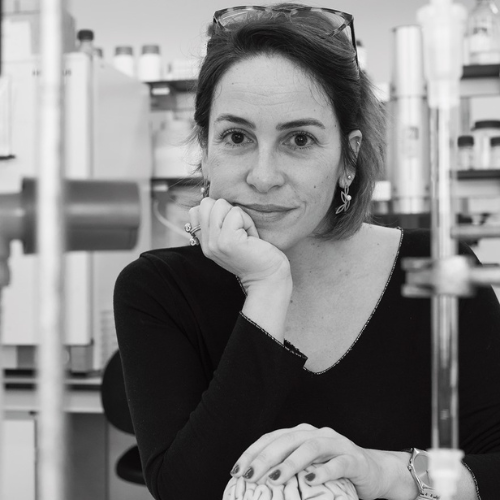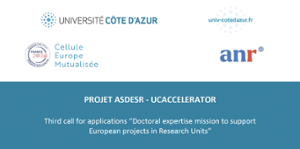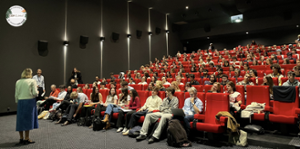Four researchers awarded a chair of the Advanced Research Program of Université Côte d'Azur
- IDEX
- Research
on the March 3, 2025
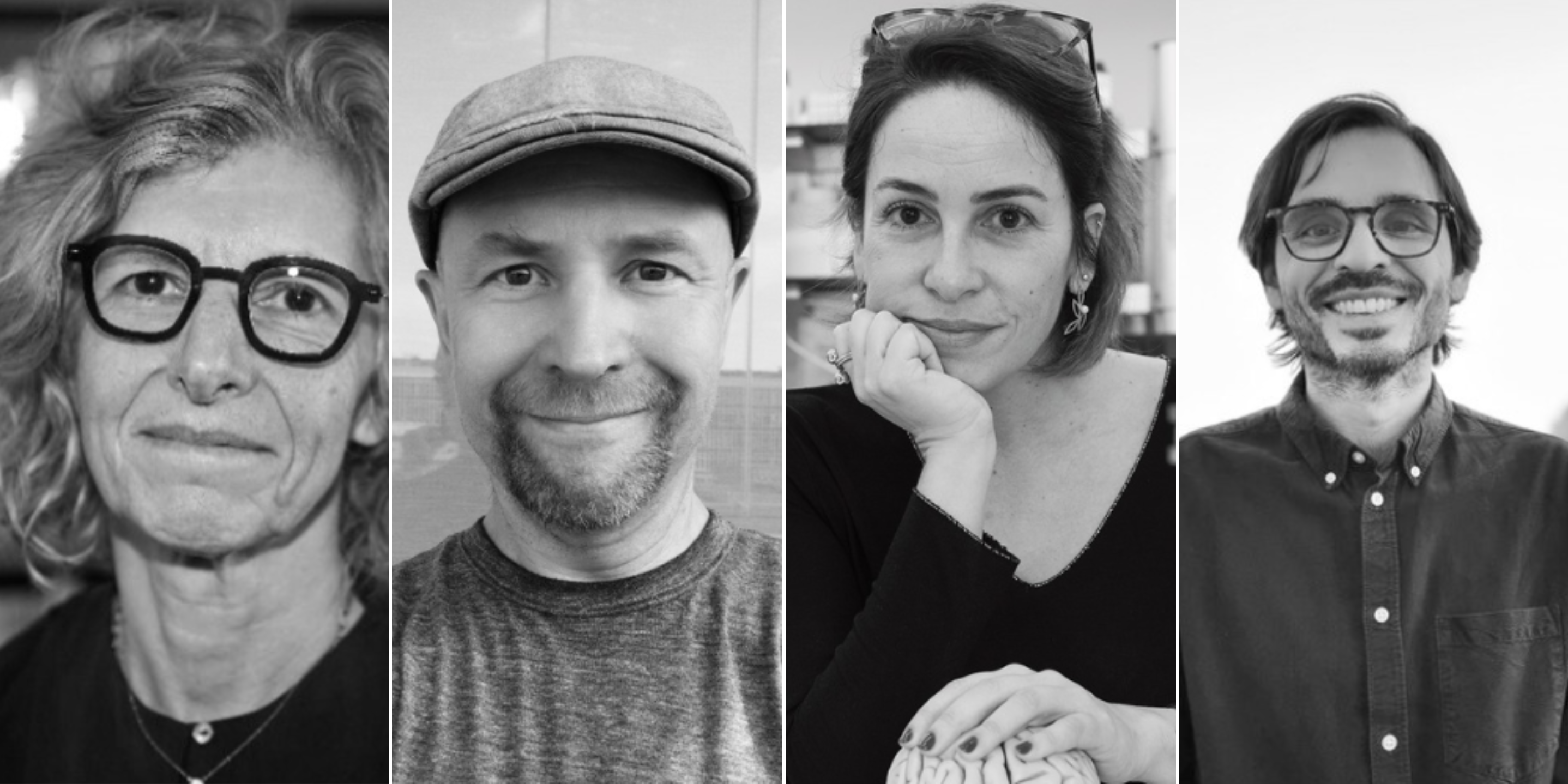
As part of its strategy to enhance international visibility and scientific excellence, Université Côte d'Azur has awarded four new research chairs under the IdEx Advanced Research Program, aiming to support the establishment of outstanding collaborations with research teams across the university.
The interdisciplinary selection committee, composed of experts from both within and outside Université Côte d’Azur, carefully reviewed numerous high-level applications and selected four distinguished researchers to benefit from this prestigious initiative. The selected candidates are Mairi Sakellariadou, Mikko Karttunen, and Luísa V. Lopes, who will join Université Côte d’Azur for extended research stays, and Hervé Técher, who was awarded a chair dedicated to in-house candidates from the university.
We warmly congratulate the four laureates and their respective research teams on this achievement and look forward to the scientific breakthroughs that will emerge from these supported research programs.
Below is a short biography of the four new chairs, winners of the 2024 call of the IdEx Advanced Research Program:
- Mairi Sakellariadou, University College London, Chair of the IdEx Advanced Research Program, hosted by Nelson Christensen, ARTEMIS laboratory, Observatoire Côte d’Azur
-
Mairi Sakellariadou earned a Bachelor’s degree in Mathematics from the University of Athens before pursuing astrophysics at the Institute of Astronomy, University of Cambridge (UK), where she obtained a Certificate of Postgraduate Studies and a Master of Science (M.Sc.). During her time at Cambridge, she was a member of Trinity College and President of the Postgraduate Students' Association. She continued her studies in the United States at Tufts University (Massachusetts), earning both a Master of Science and a Doctor of Philosophy (PhD) in Physics.
She has held positions at various prestigious institutions, including the Université Libre de Bruxelles, Université de Tours, Sorbonne Université (Paris VI), the University of Zurich, the University of Geneva, and CERN. Before joining King’s College London in 2005 as a Reader, she was an Associate Professor at the University of Athens. Since 2011, she has been a Professor of Theoretical Physics at King’s College London.
Her research focuses on theoretical physics and cosmology, particularly the early universe. She explores fundamental questions such as the state of the universe before the Big Bang and the nature of dark matter, combining gravitational physics, astrophysics, quantum gravity, and mathematical physics. Her work integrates theoretical developments with observational data, aiming to test fundamental physics through gravitational waves and cosmological models. Her research follows two main directions: using gravitational waves to test fundamental theories and applying quantum gravity to cosmology, leveraging observational data to validate theoretical models.
She has contributed to over 360 scientific papers, accumulating over 82,000 citations (h-index: 101), with significant work on gravitational waves, topological defects, non-commutative geometry, dark matter, and modified gravity.
Mairi Sakellariadou is actively involved in several major international collaborations, including the LIGO Scientific Collaboration, GEO 600, the LISA Consortium, the Einstein Telescope, the MoEDAL Experiment, the European Pulsar Timing Array, the Square Kilometer Array, and the Euclid Consortium. She is a co-chair of the Stochastic Group in the LIGO-Virgo-KAGRA Collaboration and co-chair of the Cosmology Division of the Einstein Telescope Observational Science Board. Additionally, she is a founding member of the International Society for Quantum Gravity (ISQG), a member of the Foundational Questions Institute (FQXi), and serves as Editor-in-Chief of General Relativity and Gravitation (Springer).
- Mikko Karttunen, The University of Western Ontario, Chair of the IdEx Advanced Research Program, hosted by Matteo RAUZI, Valrose Institute of Biology (iBV)
-
Dr. Mikko Karttunen originates from Finland, but has worked for most of his career in Canada. He earned his MSc in Tampere, Finland, followed by a PhD in Physics at McGill University in Montreal, and postdoctoral research at the Max Planck Institute for Polymer Research in Mainz, Germany. After Germany, he moved to Aalto University in his native Finland, where he worked as a researcher and an Academy of Finland Fellow. In 2006 he was hired as a faculty member at Western University in London, Ontario, Canada, where he currently resides and is a joint professor in the departments of Chemistry, and Physics and Astronomy. Since 2017 he is Canada Research Chair in Computational Materials and Biomaterials Research. In addition to Western University, he has also been a professor in the Chemistry department of the University of Waterloo, in Canada, and a professor and Chair of Mathematics of Complex Systems at the Eindhoven University of Technology.
Dr. Karttunen’s main tools are theory, high-performance computing, and machine learning, and his work focuses on biological and soft materials, in particular the interface between materials science, biology, and biomedical sciences. As part of the IdEx program, he will be collaborating with Professor Matteo Rauzi at the Valrose Institute of Biology. is the aim of their research isto use a broad interdisciplinary approach to develop an in-depth understanding of the motions and movements of the cellular nucleus, nuclear migration, and how it determines cellular differentiation, patterning and development. These fundamental biological questions are vital for understanding tissue development. Anomalies in nuclear migration have been linked with serious diseases including breast, ovarian, colorectal and lung cancers, yet little is known about the mechanisms. The aim of this research is to uncover some of the mechanisms that govern such cellular development, and, importantly, disease-causing anomalies. For this, Karttunen and Rauzi will be using cross-disciplinary methods combining state-of-the-art experiments, multiscale computational modeling, and machine learning.
- Luísa V. Lopes, Faculty Medicine, University of Lisbon, Chair of the IdEx Advanced Research Program, hosted by Paula Pousinha, Institut Pharmacologie Moléculaire et Cellulaire (IPMC)
-
Luísa V. Lopes is a neuroscientist and Group Leader at the Gulbenkian Institute for Molecular Medicine (GIMM) in Portugal and Professor at the Lisbon Faculty of Medicine. Her current research focuses on understanding the mechanisms that induce the "early-aging" of cognitive function focusing on hippocampal circuitry and related behavior in rodent models. Her laboratory has provided evidence for the significant contribution of adenosine receptors in pathophysiological contexts and their impact on conditions such as stress, aging, and neurodegeneration. Her contributions to the field have been recognized by awards from the Federation of European Biochemical Societies, the Federation of European Neuroscience Societies, and the European Molecular Biology Organization, among others.
Luisa graduated with a degree in biochemistry from the University of Lisbon in 1998 and then pursued a Ph.D. in Neurosciences, with additional training at the University of Cambridge, UK, and the Karolinska Institute, Sweden. She gained postdoctoral experience in a corporate setting at the Nestlé Research Center in Switzerland, where she studied brain-gut interactions, particularly focusing on early-life stress. In 2013, Luisa established her own research group at iMM as the recipient of an Investigator FCT position.
Her research contributions include identifying circadian disorders as triggers for accelerated cognitive decline (Mol. Psychiatry, 2013; Scientific Reports, 2016), establishing mechanisms for early synaptic degeneration in the hippocampus (Nature Neurosci, 2017; Aging Cell 2023), and uncovering a neuro-immune link in short-term memory (Sci Immunol, 2019; Cell Rep 2021). She is currently focusing on implementing novel aging-equivalent models to study human synaptic function.
Luisa has published over 60 articles and several book chapters in international scientific journals, including prestigious ones such as Nature Neuroscience, Science Immunology, and Molecular Psychiatry. She has supervised the doctoral theses of eight students in her team. She is a member of several Portuguese and international scientific societies and served as a board member of the Portuguese Society of Neurosciences from 2008 to 2011. She is also a member of the Scientific Council of the Faculty of Medicine and of the coordination team for the Master's in Biomedical Research.
Her achievements have been recognized with awards such as the Mantero Belard Award from the Santa Casa da Misericórdia de Lisboa in 2018, the Pfizer Award in Biomedical Research in 2020, and the Interstellar Initiative Award for "Healthy Aging and Longevity" from the New York Academy of Sciences in 2021. Additionally, she received her accreditation to supervise research in Neuroscience from the Faculty of Medicine in Lisbon in 2021 and the University of Lisbon-Caixa Geral de Depósitos Award for her academic merit in the field of Biomedicine in 2022. Most recently, she obtained a La Caixa Impulse Innovation Award in 2023.
- Hervé Técher, Institute for Research on Cancer and Aging in Nice (IRCAN), Université Côte d'Azur Chair of the IdEx Advanced Research Program, in-house candidate
-
Hervé Técher earned a PhD in Molecular and Cellular Biology in 2012 from Université Pierre et Marie Curie (now Sorbonne University, Paris, France) under the supervision of Professor Michelle Debatisse at the Institut Curie. After completing his doctorate, he joined the laboratories of Professor Vincenzo Costanzo (2013-2018, IFOM, Milan, Italy) and later Dr. Philippe Pasero (2019-2023, IGH, Montpellier, France) to further develop his expertise in molecular mechanisms maintaining genome stability.
Since late 2023, Técher has held a Junior Professor Chair (CPJ) in the Biology of Aging and Human Pathologies at Université Côte d’Azur (EUR Life). His research team, currently being established at the Institute for Research on Cancer and Aging, Nice (IRCAN), focuses on understanding the links between genome instability and inflammatory responses in autoinflammatory diseases, cellular senescence, and cancer. His team is supported by IdEx through co-funding for lab setup and an international research project (PRA).
Hervé Técher is the lead author of several high-impact publications, including papers in Nature Communications (2024), iScience (2024), Nature (2018), Nature Reviews Genetics (2017), and Cell Reports (2016). Alongside his research, he teaches molecular and cellular biology, oncology, aging biology, and human pathology at all academic levels at Université Côte d’Azur.
With the support of IdEx through the Advanced Research Program (PRA), Técher’s team is investigating the molecular mechanisms by which the CagA protein of Helicobacter pylori promotes gastric cancer development. CagA acts as an oncogene by weakening the DNA protection and repair systems, leading to genomic instability. This project is conducted in collaboration with Dr. Arun Mouli Kolinjivadi from the Cancer Science Institute (CSI), Singapore, and the research team at IRCAN.
Learn more about the IdEx's Research Program
